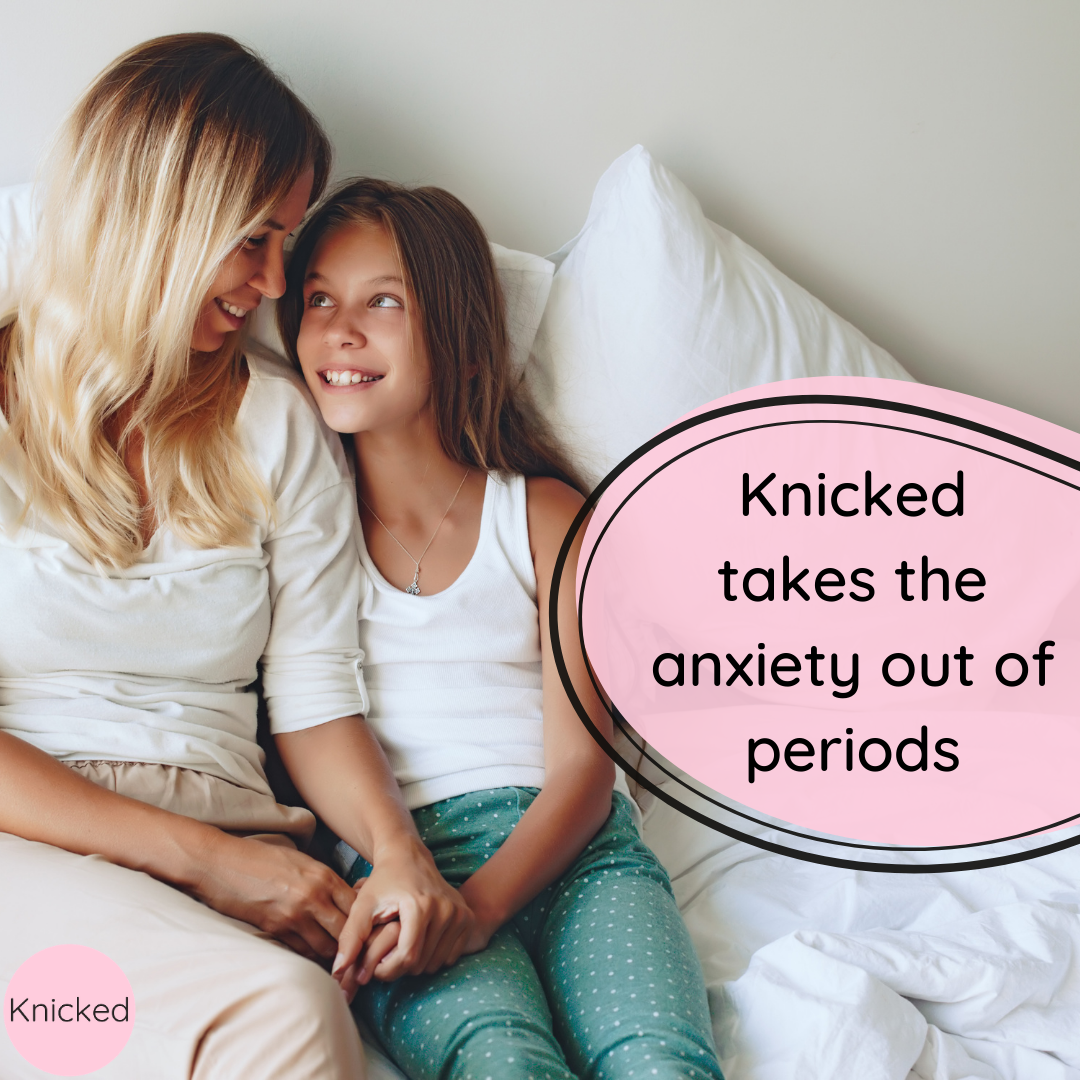Our minds are one of our most powerful tools. They guide our actions, thought processes and emotions, yet during our tween and teen years, they can be easily rewired, unconsciously altering our psyche and increasing the risks of a negative self-image, anxiety and depression.
It’s already hard enough being a parent and having to watch your child navigate growing up, but in today’s world, there is increasing pressure on them (and you!) that makes everything harder in a new way. With the excessive reach of social media in our daily lives, we may find ourselves experiencing a negative overload, sparked by witnessing too much negative information or comments without a healthy balance or break.
This is why the way you talk to yourself matters, especially in a time where others’ thoughts are unrestricted and easily shared. We need to build strong foundations of positivity and self-confidence in our tweens and teens (and ourselves) to help process the content they consume daily, both online and in real life.
So here’s a few tips on how to help your tweens and teens navigate moving into adulthood and staying true to themselves in the modern day:
Self Talk
Did you know if you consciously tell yourself more positive things, they’ll be subconscious thoughts one day? This is also what happens with negative talk. If you are exposed to enough of it, whether directly or not, it becomes a reflex, changing our mindset to make it harder to see the positives in life. However, with some active efforts, this can be altered to shift back to a subconscious positive state, making every negative thought you have also come with an instinctive positive. This helps make potential decisions more thought-through, and negative comments about yourself are immediately countered, reminding your tween or teen of their innate love and support for themselves.
This extends beyond your opinion of yourself too. For example, if you find yourself unnecessarily judging others (like we are exposed to constantly with social media) you can retrain your mind to shut down any bad thoughts, saving yourself the energy of judging a stranger. If you identify when this happens, and consciously tell yourself to stop, it’ll become a reflex, making sure a judgemental mindset is not an unhealthy daily occurrence. This is even more important for tweens and teens to understand, so they don’t fall into the trap of excluding or judging their peers.
To help your tweens and teens achieve this, you can start consciously incorporating positive self talk in their days and encourage them to do the same with affirmations.
Here are some positive affirmations that you can tell your kids every day to help them feel positive and loved:
- You are beautiful
- My world is better with you in it
- I have faith in you
- You can do this
- You are loved
- You can handle it
- You are deserving
- I am proud of you
- You matter
- You are a good person
- I believe in you
- You are valued
- Your ideas matter
- I'm glad you're here
- I'm grateful for you
- You are creative
- You are smart
- You are capable
- You inspire me
- You can do anything
- I love spending time with you
- I love you
- You are trustworthy
- You are unique
- I love your flaws
- Your flaws are what make you beautiful
- You are brave
- Your feelings are valid
- You are perfect just the way you are
Changing the Algorithm
Social media algorithms reflect what you look at most, meaning any one video or photo about something negative can be repeated again and again with similar themes. Our minds sponges, so even briefly reading something that triggers negative self talk can be subconsciously processed in the back of our minds and slowly distort our views. This is why it’s important to utilise social media and the algorithm as a tool to get beneficial content that increases our exposure to positive self talk.
Try sending the tweens and teens (or anyone!) in your life messages or posts about love and the positives in life, or find people to follow that are body positive and real online. This can influence the content in our loved ones' feeds over time, so they subconsciously, or consciously, take it in.
Non-Negotiables
Another really important part of positive thinking is having non-negotiables. It feels like just as our internet speeds are increasing, we are being expected to increase our speed too. Every hour of the day needs to be filled with productivity just to keep up with the rest of the world, but that’s unsustainable, and burnout becomes a real threat. Just as you may be feeling overworked, so too is everyone else, including your tweens and teens. They have to try and give their all to school, work and extracurricular activities. Not to mention learning how to pick out and sustain good, supportive friendships, navigate potential relationships, and have some form of helpful presence at home. All while working with a brain that’s “still under construction”, as written in Brain development in pre-teens and teenagers. As children become teenagers, their brains grow and change, starting at the back. This means their prefrontal cortex, which happens to be the decision-making part of the brain, is changed last, resulting in thinking and behaviour that sometimes be very mature, or sometimes entirely impulsive. It’s like if you were forced to cook a five-course meal in a kitchen only half renovated: you can prep your dishes on the new countertops, but you still need to cook everything in your old easy-bake oven.
Non-negotiables can help with these inconsistencies, providing comfort in stable actions that prioritise slowing down. And they can be for anyone! In fact, everyone should have at least one no-negotiable in their life to ensure they get a break, allowing them to function better (and more positively!) every day.
A non-negotiable could be anything from reading 5 pages before bed every night to having one day of the week be dedicated to spending time as a family. Maybe your tween or teens non-negotiable could be a walk every day to clear their head, or half an hour of alone time after school to give their brains a break before starting their homework. Discuss it with them and see what they come up with.
Active Gratitude
Gratitude is crucial to positive thinking, helping you consciously identify the good in your life. Perhaps you could gift your tween or teen a gratitude journal or lead the way by saying what you’re all grateful for at dinner. Some people go further and do “Roses and Thorns” together as a family. This is when you say something positive that happened, your “rose” of the day, and something that wasn’t the best, your “thorn”. This reinforces that all feelings are valid, and it’s important to share with your loved ones both the good and the bad. You could do this daily or weekly, but we highly recommend giving it a try. Perhaps you could even add your own extra element, like a “bee”, and acknowledge someone who you made your life sweeter in some way.
Encourage Sleep!
A lot of people find it lazy when teenagers sleep in on the weekends or school holidays, but really it allows them to make up for lost sleep during the school week. Cynthia Weiss writes for Mayo Clinic, “In most teens, melatonin levels don’t rise until about 10:30 or 11 p.m., so they aren’t sleepy before then. But going to bed at that time means teens should ideally sleep until about 7:30 or 8 a.m. This isn’t an option for many because of school start times.”This change in sleep schedule can start in tweens, so respecting, and encouraging, more sleep is highly beneficial for your tweens and teens, giving them more energy and a better mindset. And let’s be honest, who can think positively when they’re tired?
Be a Role Model
You can’t control your children’s school, work or friend scenes, but making home a positive space, where they know they’re supported and loved regardless of their achievements, allows them to have a strong base they know they can always come back to. Some things you can do to help create this positive thinking environment is by being a role model and do the things you want them to do. So tell positive affirmations to yourself outloud, don’t let yourself judge often, and take breaks. Make sure your mind is strong so theirs can be too.
Here are some more resources that will help you in combatting negativity around your kids:
- Open letter from a mum to her teen daughter about staying true to themselves
- 5 top tips to help your kids embrace body positivity - Knicked Australia
We have produced a range of POSITIVE STICKERS that we've been sending out randomly with some orders, and if you'd like some, just type STICKERS in the notes at checkout and we'll be sure to include them with your order!













